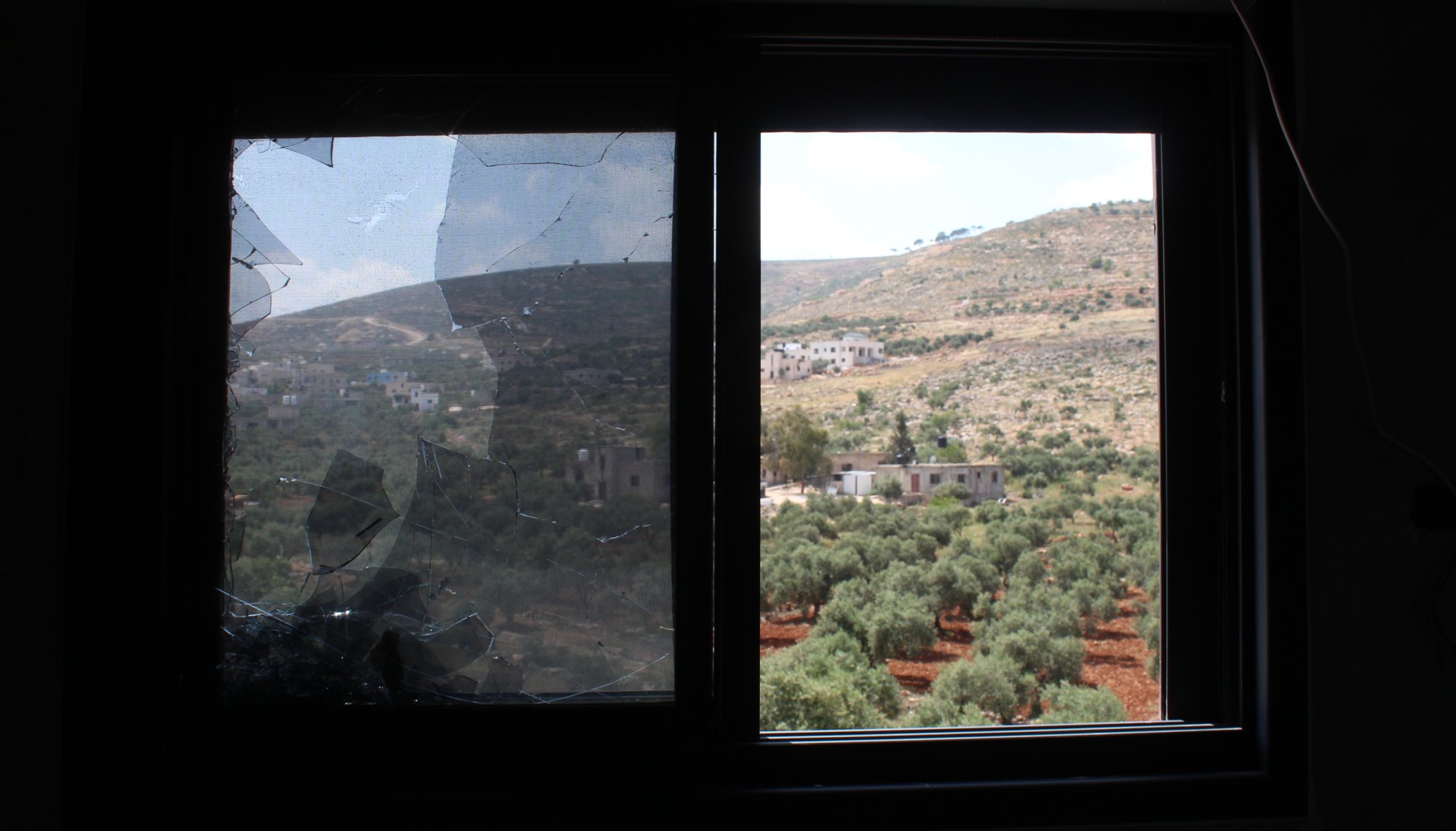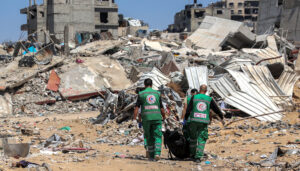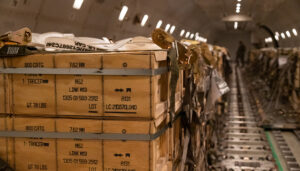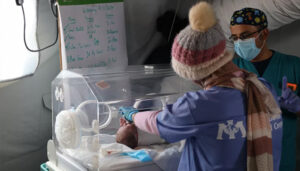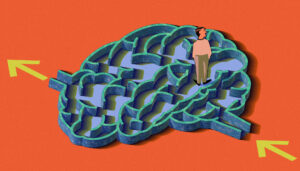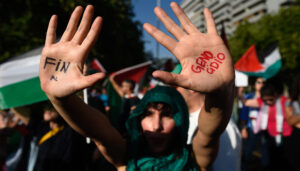
Written by Wendy Merdian
Not the Austrian Alps, but the seven hills of Amman are echoing with the sound of music, thanks to the addition of the National Conservatory of Music (NCM) to Jordan’s cultural repertoire.
Nestled in the valley of Ras Al Ein overlooking the heart of old Amman, the new facilities of the Conservatory is a part of the Hussein Cultural Center. Future plans for the area include the opening of the National Museum, building an Opera House at the site of the former Tobacco House site, and lining the streets with quality shops to create a street of culture, much like “Souk Al-Hamadiyya” in Damascus.
Mr. Kifah Fakhouri, PhD., the Director of the NCM, remembers his graduation speech two years ago, where he mentioned his vision for a symphony orchestra in Amman. He spoke of how, in other countries, city orchestras are sponsored by their municipalities. Amman Mayor Omar Maani was in attendance, a supportive patron of the arts, the Conservatory, and a musician himself. Mayor Maani later approached Director Fakhouri and said “You must move, we will support the Conservatory”.
The conservatory began in 1986 as an initiative of HM Queen Noor. Inspired by a 1984 Jerash performance of young musicians, she developed the idea to implement a program called “Young Strings in Action”. Supervised by Sheila Johnson, forty promising young Jordanian musicians were recruited from local private schools and began training in the disciplines of classical instruction. Ms. Johnson also trained three Jordanians to teach the program, and recruited forty promising students from local private schools. The program took off, and with the help of the Noor Al Hussein Foundation, the seeds for a world class conservatory were planted.
Director Fakhouri was appointed in 1988, just after the wind instrument program was instituted by Douglas Bish. He remembers that the wind instrument program had more difficulty getting off the ground, as parents initially found it ‘unattractive’ with the connotation of an army brass band, vs. the beauty of a string orchestra. “We worked hard to get around this idea, and eventually had the foundation to build upon for a full orchestra. Having teachers who were experts in their field, who excelled not only in performing on their particular instrument, but in instructing, was our goal”. Initially, NMC provided both group and individual instruction, then supplemented with music theory, analysis, music history, and appreciation.
string orchestra. “We worked hard to get around this idea, and eventually had the foundation to build upon for a full orchestra. Having teachers who were experts in their field, who excelled not only in performing on their particular instrument, but in instructing, was our goal”. Initially, NMC provided both group and individual instruction, then supplemented with music theory, analysis, music history, and appreciation.
After time, when pupils had been studying music for ten years, the NMC took action to provide college level degrees. It was another step forward in changing the minds of people from music as a hobby to music being a valuable, paid profession. “We battled the historical connection of music with drinking and low class living, the concept that professional musicians were only nightclub entertainers, hardly the noble and honorable vocation that is it elsewhere”, said Director Fakhouri.
The NMC began to offer courses not only at the prep level, but five disciplines at the college level as well. The courses offered, in cooperation with Yarmouk University, are: composition and conducting, vocal and instrumental performance, Arabic music, music education, and music therapy. Students sat for joint examinations in cooperation with the French Conservatoire De Region d’Bologne, and there is also a local representative on the board of the Royal Schools Consortium of the United Kingdom. Having world-class, professional instruction locally means that Jordanian musical talent doesn’t automatically have to leave the country to pursue a career in music.
Another NMC goal from the beginning was to incorporate instruction in indigenously Arab instruments, musical style and composition as well. “We not only want to perform the classics of the West, but display our Arab identity and solidify our rightful place in music internationally.” The oud and nai, beloved Arab instruments, are both taught; attracting foreign students working on their dissertations. NMC’s chair for the Arab music department Sakher Hatta, takes groups of NMC students both to perform and train in various locales around the world each summer. He is accompanied by Simon Shaheen, a world-class oud and violin player, and both use the opportunities of travel to instruct others in unique Arabian tonal blends. “We are truly ‘missionaries in music’, showing the world another face of our region on a level they respect and understand”.
Training in the disciplines of the art is just the first step of the journey the NCM provides for students. Music is also about performance. “It is an important part of our strategy to create ensembles for students to strengthen their skills in performing. We have small group ensembles, a band, choirs and now, the Amman Symphony Orchestra. Performances also create a societal awareness of the importance of music in our lives,” explained Director Fakhouri.

This societal awareness was raised a few notches this summer when the Amman Symphony Orchestra combined talents with the Cairo Symphony Orchestra and choir of the Holy Spirit University of Kaslik, Lebanon presented the city a musical gift in the form of Bach, Gershwin, and Carl Orff’s ‘Carmina Burana’. A magnificent performance, in the breathtakingly beautiful setting of the Roman Theatre downtown, clearly transported the audience elsewhere that night.
The conservatory is not designed just for the training and enjoyment of Amman’s upper strata of society. ”It is my belief that we exist not only to serve those who can afford to study, but also the less privileged. Several years ago, we began bringing promising students by bus from the refugee camps near Al-Ashrafiyya to our old facility to create a new youth string orchestra. An international foundation based in Holland, “Music in M.E.” (“Middle East”) sponsored this program, as well as a new program in music therapy. Initially, we faced some resistance; it is hard to make music a priority when a child’s basic needs are scarcely met. There were conservative parents who were not overly excited about their daughters leaving the camp for instruction. We changed our mechanism then, and brought the instruments and the teachers to the camps. It is not easy, no, but it is a most worthy investment in these young lives.”
The move to the new facility to the downtown area will facilitate this investment, as it is much easier for such students to travel to. The conservatory will provide thirty-five underprivileged students scholarships to study.
According to Director Fakhouri, the next step for the NMC is sustainability. With salaries not rising with the increasing cost of living, music lessons for children are among the first ‘luxuries’ cut from a family budget. “The concept of philanthropy in Jordan is primary limited to health, religion and agriculture. But for those so affected, there is also a poverty of spirit which also needs to be addressed. I would like the government to have a greater understanding of the societal importance of developing local musical talent. Developing qualified musicians at an international level of excellence teaches the concept of ‘baka il aqwa’ to a watching world.”
“More than any form of education, music builds a natural bridge of cultural understanding, developing a deep connection between the Arab society and the watching world. For too long the negative actions of others have painted the picture of who we are. Artists are excellent ambassadors”.
Patrick Seale, in his book “The Shaping of an Arab Statesman”, quotes Shariif Abdul Hamid Sharaf in the same vein: “’ He was fond of saying “It would do Arabs more good to produce one talented pianist than one hundred ambassadors discoursing about ‘the cause’’’. The National Music Conservatory is aspiring to and accomplishing, that worthy goal.




